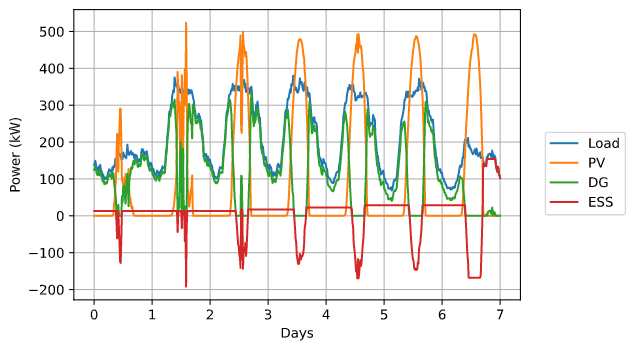Multi-Objective Optimization for Sizing and Control of Microgrid Energy Storage
Final Project for AA 222: Engineering Design Optimization
Abstract: Microgrids, electrical power systems that are able to isolate (island) from the larger electric grid and self-sustain for extended periods of time, serve multiple purposes to a wide variety of stakeholders. To the communities that microgrids directly serve, microgrids supply reliable electricity in the face an unstable macrogrid, increasingly driven by the effects of anthropogenic climate change. Lithium-ion battery energy storage systems (ESS) currently are the dominant energy storage system for macrogrid usage, and therefore are used in microgrids as well. For microgrids, energy storage is not just a financial asset, but a lifeline during islanding periods when stable grid power is not available, yet lithium-ion ESSs degrade with usage and time. Key to addressing this problem is determining the sizing and control of the microgrid ESS in order to sustain the customer load during islanding periods. This paper presents a multi-objective optimization to address this problem, including a cost function penalty that ensures operation of the ESS that avoids degradation-inducing behaviour. This optimization is implemented in Gurobi and solved for several cases, demonstrating the flexibility of optimization framework as well as the effectiveness of the degradation penalty.
